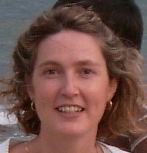People of ACM European Chapters - Eva Cerezo
March 7, 2019
Can you briefly describe your own line of research and how you became interested in this area?
At the University of Zaragoza, I lead the AffectiveLab, a multidisciplinary team of researchers drawn from the Computing Engineering, Electronics, Education, Sociology and Psychology fields. Our aim is to make the advances in HCI available to all kinds of users. We are especially interested in young children and children with special needs. Our group has worked in developing Tangible User Interfaces and, more specifically, tangible tabletops that work cognitive and motor skills through hybrid games. In the last few years we have been working on the development of pervasive games that combine tangible and gesture interaction in Interactive Spaces—with the aim of working on children’s social and emotional skills. The creation of tools that facilitate the creation of these types of games, and which bridge the gap between designers and developers, has been a constant concern for the group.
During my PhD, I became involved in a European project working on 3D virtual characters. I realized their potential as multimodal interfaces to support users in many different contexts. Shortly after that, I had the opportunity of being involved in the teaching of a HCI course and became more familiar with the area. The multidisciplinary nature of the field, and the possibility of measuring the impact of what we were developing as computing professionals, captivated me.
In your area of research, what recent advance/emerging subfield will yield important advances in the years ahead?
The engagement of users in the design of systems and applications has dramatically changed the ways of designing them. Users have evolved from simple testers to co-designers. More and more users are getting empowered to get what they really need. In that line, the End User Development (EUD) paradigm aims to enable the development of interactive applications by their end-users. It tries to bridge the divide between design-time and use-time, allowing continuous adaptation of interactive systems that fulfill specific user needs.
Will you tell us a little about the Spain ACM SIGCHI Chapter?
The chapter, called CHISPAIN, has around 120 members. It works elbow-to-elbow with the Spanish Human Computer Association (AIPO). They both share the aim of promoting and disseminating advances in HCI. Our main activity is the Interacción congress, a yearly conference attended by around 80 people. This June the 20th Anniversary is going to be held in San Sebastian, in the Basque Country. The conference provides a forum to exchange and discuss ideas on design and application techniques from a multidisciplinary point of view. Interacción draws not only researchers, professionals and students from Spain but from other Spanish-speaking countries such as Colombia and Mexico. A speaker from the ACM Distinguished Speaker Program is always invited and the proceedings are published in the ACM Digital Library. Discussion and exchange of teaching experiences in HCI is also a focus of the Interacción meeting. A popular part of the program is the Engendering Technologies Workshop, which focuses on all the gender aspects of the technology domain.
What advice would you offer a younger colleague just starting out in the computing field?
Computing is an exciting area with strong impact on people’s lives. Thrilling challenges ranging from Big Data to AI, are waiting for new ideas and joint efforts. Joining a team made up of motivated people with good contacts will help you to progress properly. Just find a problem that really motivates you and leap to solve it. For women, forget about stereotypes and don’t be afraid to develop your career in the computing field. The scarce number of women in IT professions is a fact that has to change, as it has been proven that diverse teams lead to better results. Computing is changing our society and women need to be part of the field.

Eva Cerezo is Associate Professor at the School of Engineering and Architecture and Head of the Computer Sciences and Systems Engineering Department at the University of Zaragoza (Spain). Her research interests include natural interaction, virtual humans, affective computing and computer graphics.
She is currently the Chair of the Executive Board of the Spain ACM SIGCHI Chapter.